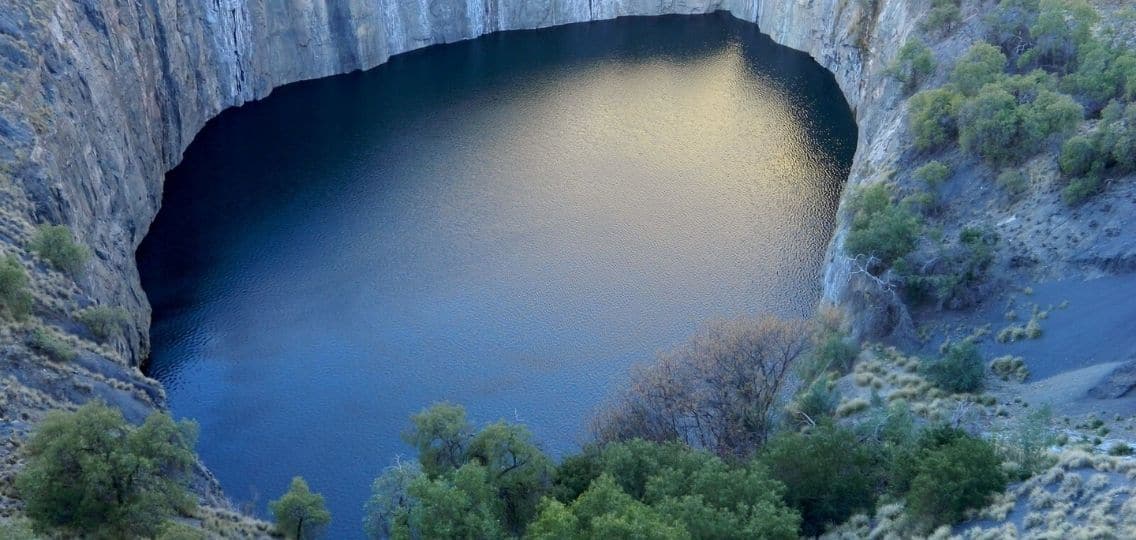Resolution sets strong precedent of accountability for future mining projects
TORONTO, ONT./TRADITIONAL TERRITORY OF THE HURON-WENDAT, THE ANISHNAABEG, HAUDENOSAUNEE, CHIPPEWAS AND THE MISSISSAUGAS OF THE CREDIT FIRST NATION (Boozhoo, Kino Weya, Ya’at’eeh Shi’kis)
An eight-year struggle for accountability in Ontario’s mining sector came to an end in the Timmins Ontario Court of Justice last week when De Beers Canada Inc. pleaded guilty to one count of failing to provide mercury monitoring data relating to the operation of its Victor Diamond Mine.
This resolution concludes the private prosecution Ecojustice launched in partnership with former prosecutor David Wright, based on evidence collected by Wildlands League. This evidence indicated that De Beers had continuously failed to report mercury and methylmercury levels in water systems around the Victor Mine over a period of seven years, despite being required by law to do so.
Methylmercury is a harmful poison, and exposure to increased levels of mercury puts local populations and the environment at risk. Elevated levels of mercury in river water can present a danger to human health even in extremely small quantities. Mercury accumulates in fish and is found in higher levels in larger fish such as pike. The reporting failures undermined the effectiveness of the mine’s early warning system for mercury pollution.
Mercury monitoring data repeatedly exceeded US Environmental Protection Agency (EPA) reference guidelines for wildlife and human exposure to mercury from monitoring stations between 2008 and 2015. In a 2013 report, De Beers acknowledged that the Canadian standards “are not sufficiently protective” of the environment and that it is more appropriate to rely on the US EPA standards.
As per the terms of the resolution, De Beers agreed to publicize all past and future annual mercury monitoring reports on its website. Additionally, the company agreed to pay a nominal fine of $100 and to make a $50,000 donation to charity.
The case sets a precedent for mining activities in the province, including the so-called “Ring of Fire” area in Northern Ontario, and how mining pollution is to be reported and regulated.
Zachary Biech, lawyer, Ecojustice said:
“While Premier Doug Ford has oft claimed Ontario is open for business, this prosecution makes clear that any mining activity must still follow the law.
“This private prosecution was necessary because Ontario’s reliance on self-reporting by mining companies does not work. Too often, this gives mining companies the opportunity to pollute with impunity, as was the case with DeBeers at its Victor Mine.
“The precedent set by this case will help improve regulatory oversight of future mine projects and should make polluters think twice in the event they are tempted to sidestep their reporting duties.”
Trevor Hesselink, Director, Policy and Research, Wildlands League said:
“In this case, the public was deprived of required monitoring of a known neurotoxin in the water systems around this diamond mine
“If Ontario’s current system cannot be trusted for a single mine, what liabilities loom ahead for the far more ambitious mining plans in this sensitive ecosystem?
“While transparency and regulatory oversight are clearly needed more than ever, they are sadly backseat to the current ‘red-tape reduction’ priorities of this government.”
Background
The Victor Diamond Mine, an open-pit diamond mine operated by De Beers Canada Inc. is located upstream from the Attawapiskat First Nation. Beginning in 2008, the project pumped water from the open pit into the Granny Creek water system which flows into the Attawapiskat River, triggering a rise in the mercury level in the water and the fish populations.
When the mine was in operation, De Beers Canada was required to report mercury monitoring data annually from eight mercury monitoring stations and one control site located on the Granny Creek water system. The mine ceased operations in 2018 but is required to continue monitoring mercury according to its provincial permit.
A Wildlands League 2015 investigation uncovered that De Beers failed to report on 5 out of 9 surface water monitoring stations, a mandatory requirement of its permit. The failures in self-monitoring raised troubling concerns about entrusting the company to protect the environment in which it operates –one of world’s largest wetlands and the wildlife it supports.
More information about private prosecutions
A private prosecution is a prosecution instigated by a private individual who is not acting on behalf of a law enforcement agency or prosecution service. The right of a citizen to seek prosecution for a breach of the law has been called “a valuable constitutional safeguard against inertia or partiality on the part of authority”. A Crown counsel supervises the prosecution and can step in at any time if in their opinion the interests of justice require.
In this matter, Ecojustice brought a private prosecution based on evidence collected by Trevor Hesselink of Wildlands League.

